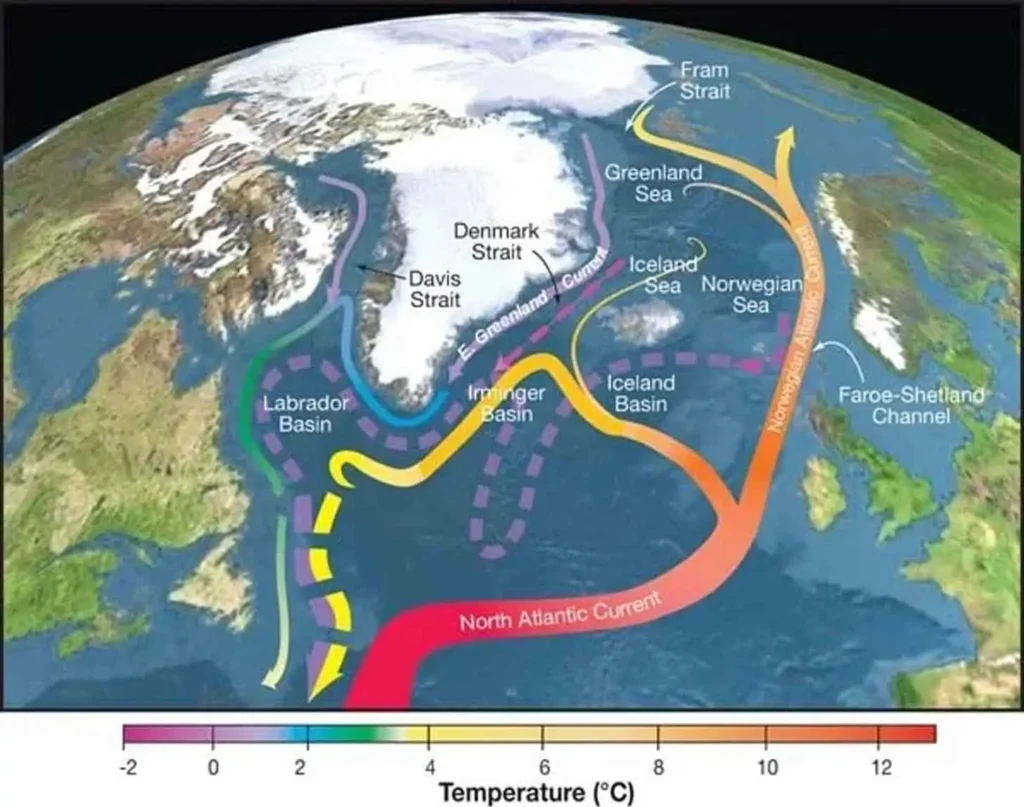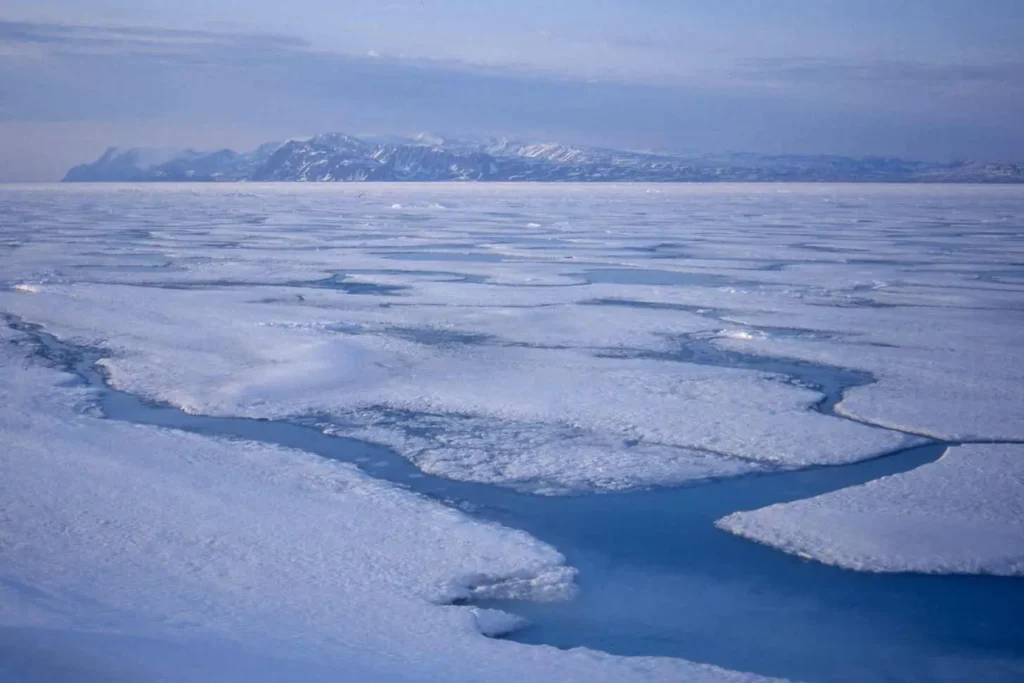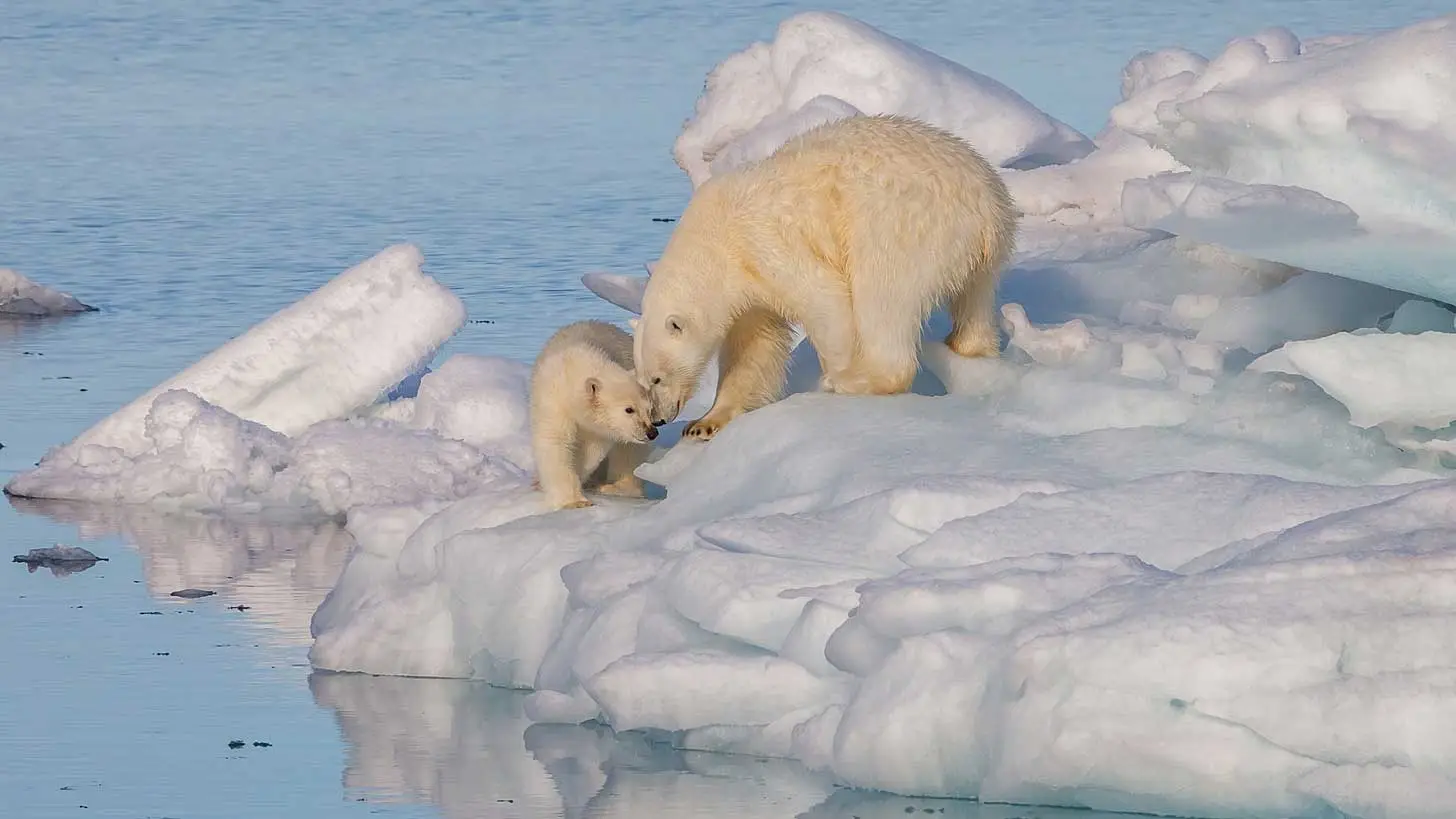As climate disasters and record-high temperatures increasingly affect daily life, the concept of “global warming” often conjures images of melting ice caps and struggling polar bears. Indeed, the Arctic is warming at an alarming rate—three to four times faster than the global average.
Recent research from the University of California, Riverside, suggests that a slowdown of a key ocean current, the Atlantic Meridional Overturning Circulation (AMOC), could help mitigate projected warming by as much as 2 degrees Celsius. This current plays a vital role in transporting heat from tropical regions to higher latitudes, and its deceleration could provide some respite for the Arctic.
“The AMOC is crucial to our climate system because it redistributes heat around the globe,” explained Yu-Chi Lee, a UCR graduate student and the study’s lead author. “Our findings indicate that a weakening of the AMOC reduces the heat reaching the Arctic, which slows its warming.”

Currently, Arctic temperatures are expected to increase by a staggering 10 degrees Celsius by the end of the century. However, this new study suggests that a slowdown in the AMOC could limit that rise to 8 degrees Celsius.
What’s the Nuance?
While an increase of 8 degrees is still catastrophic, relying solely on changes in ocean currents is not a viable solution. The melting of sea ice poses a significant threat to wildlife, including polar bears, which face habitat loss. Moreover, as ice diminishes, the ocean absorbs more sunlight, exacerbating warming.
As Wei Liu, an associate professor of climate change at UC Riverside and co-author of the study, noted: “The slowdown of the AMOC may provide some temporary relief in the Arctic, but this isn’t a straightforward positive development.” In addition to potentially reducing warming, the AMOC slowdown could trigger other climate disruptions, such as a shift in the Intertropical Convergence Zone, a key tropical rain belt. If this zone migrates southward due to the current’s weakening, it could lead to droughts in various regions, severely impacting agriculture and water resources, especially in Africa.

“The overall effects on ecosystems and weather patterns, both in the Arctic and globally, could still be devastating,” Liu added.
The research team utilized a coupled climate model, which considers the interactions between the ocean, atmosphere, land, and sea ice, to simulate future Arctic warming scenarios. They ran two simulations: one allowed the AMOC to weaken due to rising greenhouse gas levels, while the other maintained the current’s strength.
These simulations highlighted the strong link between Arctic warming and the AMOC slowdown, positioning scientists to better grasp the broader implications. “While the AMOC slowdown might yield some short-term benefits, its wider impacts reveal that even minor shifts in ocean circulation can create far-reaching consequences worldwide,” Lee stated.
While a slowing AMOC could alleviate some of the most severe effects of climate change, it underscores the urgent need for more extensive efforts to reduce emissions or capture carbon. The scientists hope their research establishes a new benchmark for addressing climate change impacts before it’s too late.
“Climate change is not confined to one region,” Lee emphasized. “The future of the Arctic—and the planet—depends on our actions today.”
